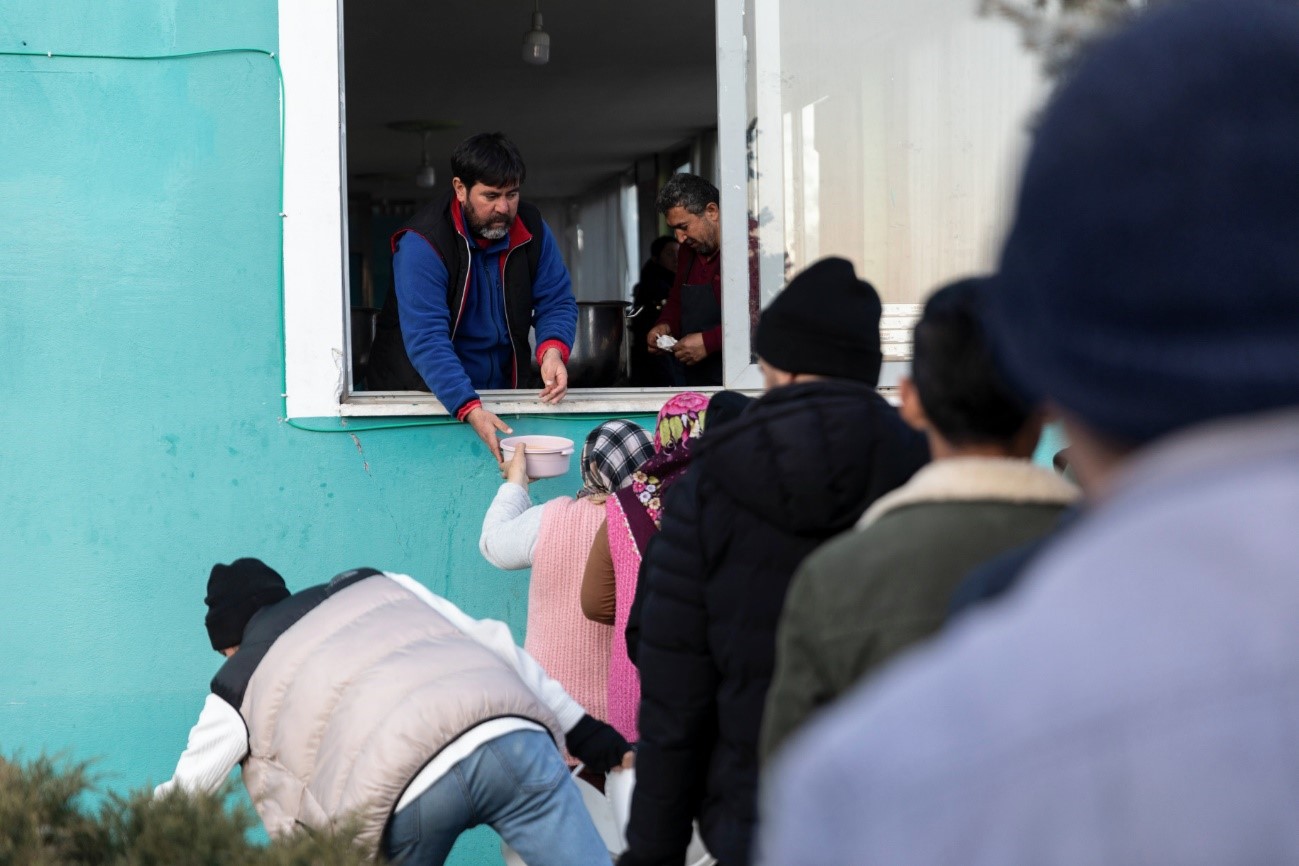Six months after the devastating earthquakes that struck southern Turkey and northern Syria, the affected regions in both countries continue to face multiple challenges.
“Although half a year has passed since the devastating earthquakes, recovery is not yet complete. Action Against Hunger continues to work in both countries to provide humanitarian assistance, early recovery and long-term rehabilitation programmes,” explains Action Against Hunger’s Regional Director for the Middle East, Chiara Saccardi.
In Turkey, the earthquake affected 11 provinces in the south and southeast, killing 50,000 people, injuring more than 100,000 and destroying nearly 300,000 buildings. Nearly three million people were forced to flee their homes, and more than 1.5 million are still living in informal settlements, posing an additional challenge due to weather conditions.
In addition, many of these people do not have access to the most basic necessities and do not have stable sources of income. Currently, approximately 4 million children need humanitarian assistance in the country.
In Syria, the earthquakes killed more than 6,000 people and injured 12,000, leaving severe damage to infrastructure and residential areas, affecting a total of 8.8 million Syrians.
Today, the population continues to face shelter problems due to severe damage to buildings, leaving many families homeless. Access to essential services such as clean water, sanitation, adequate nutrition and health care remains a major concern in both countries. In addition, people’s livelihoods and access to food have been severely affected as well as mental well-being due to post-traumatic stress disorder.
The earthquakes have increased pressure on public services and specific sectors in Syria such as healthcare, housing, and water and sanitation systems; these have all compounded the crises the country was already facing. This includes the ongoing conflict, the Covid-19 pandemic, fuel shortages, an economic recession, a cholera outbreak, and a prolonged drought. More than 15 million Syrians need humanitarian assistance, according to the UN.
Action Against Hunger’s Work in Turkey and Syria
In the past six months, the organisation, together with its local partners, has supported a total of 265,166 people in Turkey and Syria. More than 48,000 people have received water, sanitation, and hygiene support; more than 20,000 people have received health and nutrition services; and 100,000 people have been assisted through food assistance and livelihoods programmes.
“In the aftermath of a disaster, parents can no longer feed their children adequately due to stress. Children need to have adequate nutrition because it can affect them later in life. In our baby-friendly space, any mother can come in for a range of services and support,” says Action Against Hunger’s nutrition coordinator in Turkey, Kenda Al Nsour.
In Syria, Action Against Hunger also plans to rehabilitate key infrastructure in Lattakia, Aleppo and Hama, including training engineers. The organisation is also assisting in the health sector by repairing health centres, and by providing medicines, equipment and training for health workers in both Hama and Lattakia. It is also implementing a programme to increase access to food in rural communities in this region.
Action Against Hunger is also focusing on supporting Aleppo’s health system, supplying essential medicines to hospitals, distributing hot meals, shelter and hygiene materials and providing psychological care. It has also improved sanitation in collective shelters. With the help of engineers trained by the organisation, the charity has also assessed structural damage to more than 100,000 buildings.


